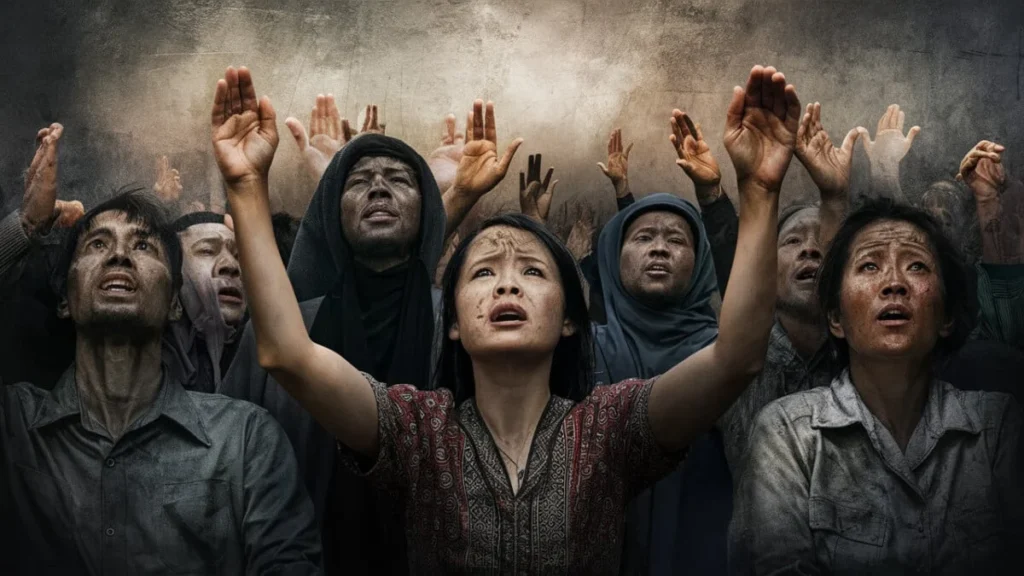In a world where religious freedom is often heralded as a fundamental right, the reality for many Christians across the globe is far more harrowing. Millions of Christians are affected by Christian persecution, which is still an ongoing and very upsetting problem. They endure violence, prejudice, and hatred only because of their beliefs. Comprehending the extent and intricacy of Christian persecution is essential to appreciate its immense influence on people and societies around the globe. This overview examines the various dimensions of this persecution, offering insights into its causes, manifestations, and global efforts to address it.
Historical Context and the Roots of Persecution
The persecution of Christians is not a recent development; its origins can be traced to the early years of the religion. Christian persecution has been a recurrent topic throughout history, from the harsh crackdowns on early Christians by the Roman Empire to the institutional discrimination experienced at different times. Because they refused to join in the worship of Roman gods, the early Christians were often persecuted and faced harsh penalties, including crucifixion. Christians have endured varied degrees of persecution over the ages, influenced by factors related to politics, culture, and religion. Understanding the historical background is helpful in comprehending the patterns of persecution that still exist in many regions of the globe today.
Geographical Spread and Regional Variations
Although it is a worldwide problem, various places have distinct forms of Christian persecution. Christianity has its historical origins in the Middle East and North Africa, regions where Christians often experience severe persecution from both state and non-state actors. Extremist beliefs and political unrest have led to major violence against Christian communities in nations like Egypt, Syria, and Iraq. Asia’s most infamous Christian-hating states are North Korea and China, whose official policies discourage religious expression and encourage atheism. Sub-Saharan Africa also faces severe persecution, especially in areas where Islamic extremism is prevalent. The particular difficulties and circumstances that each area faces affect the kind and degree of persecution faced by Christians.
Socio-Political Factors and Their Influence
The kind of persecution Christians experience is greatly influenced by the sociopolitical context in which they live. Religious freedom is often restricted under authoritarian governments as part of larger initiatives to maintain social control. These nations’ governments may see Christianity as a challenge to their power, which might result in restrictions on religious practices, the detention of religious authorities, and the dissolution of Christian communities. In some areas, religious nationalism—where the predominant religion is inextricably linked to national identity—fuels persecution and results in prejudice toward religious minorities, including Christians. Social factors that contribute to the persecution of Christians include historical conflicts between religious groups and cultural norms that have made them the subject of marginalization and persecution.
The Human Impact: Stories of Suffering and Resilience
Millions of people’s lives are directly impacted by Christian persecution, both individually and in families. There are many accounts of pain, from those who have had loved ones killed by violence to others who have had to leave their homes due to persecution. Because of their beliefs, Christians experience everyday persecution, social exclusion, and financial hardship in many nations. Persecuted Christians have shown incredible resilience in the face of these obstacles. Many people risk harsh penalties in order to uphold their religious views, continuing to practice their religion in secret. These people’s grit and tenacity serve as a monument to the faith’s lasting power in the face of hardship. To fully appreciate the effect of Christian persecution on worldwide Christian communities, one must have a thorough understanding of the human cost of this practice.
Global Response and the Path Forward
A coordinated worldwide effort, including governments, international organizations, and civil society, is needed to combat Christian persecution. Many human rights groups keep an eye on and record instances of persecution, which helps to draw much-needed attention to the problem. Diplomatic measures are used to put pressure on countries that commit or permit persecution, such as campaigning and sanctions. Furthermore, faith-based groups are essential in offering humanitarian relief, legal support, and spiritual support to Christians who are being persecuted. The road ahead is still difficult, however, since persecution is pervasive in certain areas. Sustaining religious freedom globally and mitigating the suffering of persecuted Christians need sustained awareness, activism, and international collaboration.
Conclusion
In examining Christian persecution through these lenses, it becomes clear that this issue is complex and multifaceted, affecting countless lives across the globe. Understanding the historical context, geographical spread, sociopolitical factors, human impact, and global response offers a comprehensive picture of the challenges that Christians face today. By shedding light on these aspects, it is possible to foster greater awareness and contribute to the efforts aimed at addressing this pressing human rights concern.
